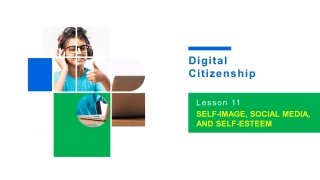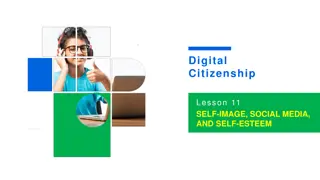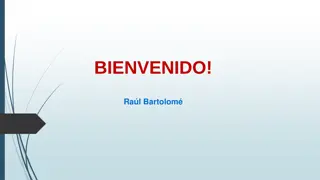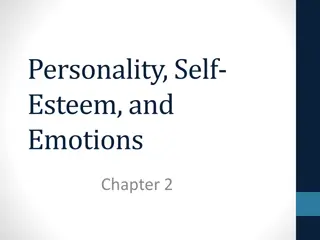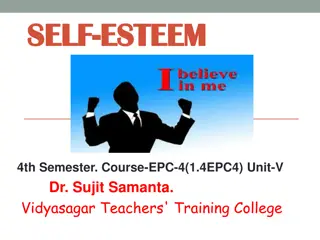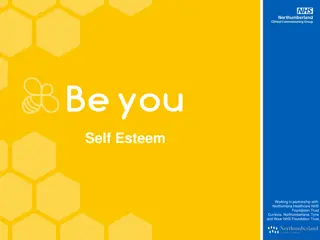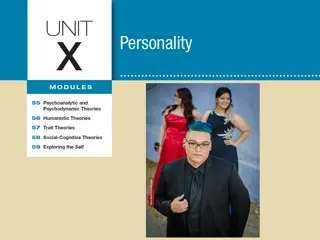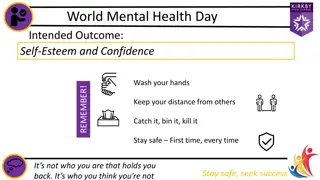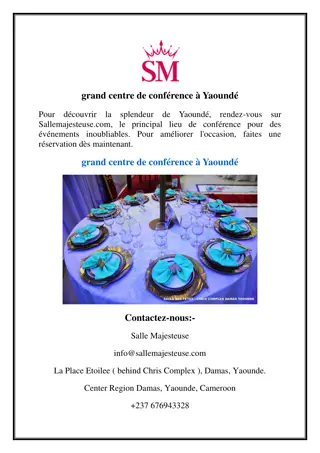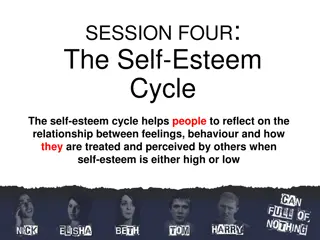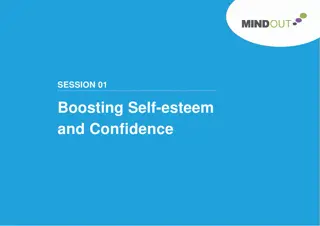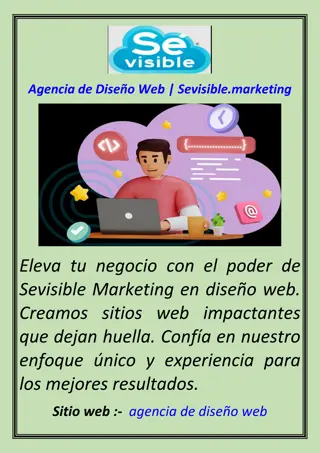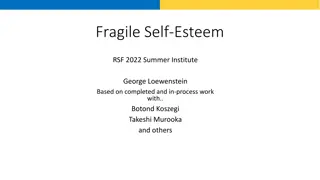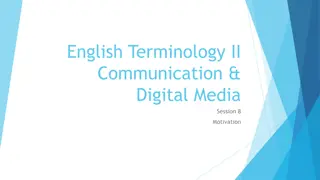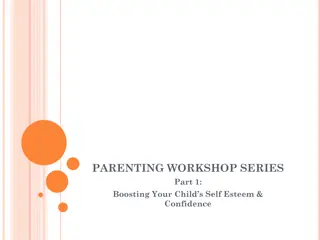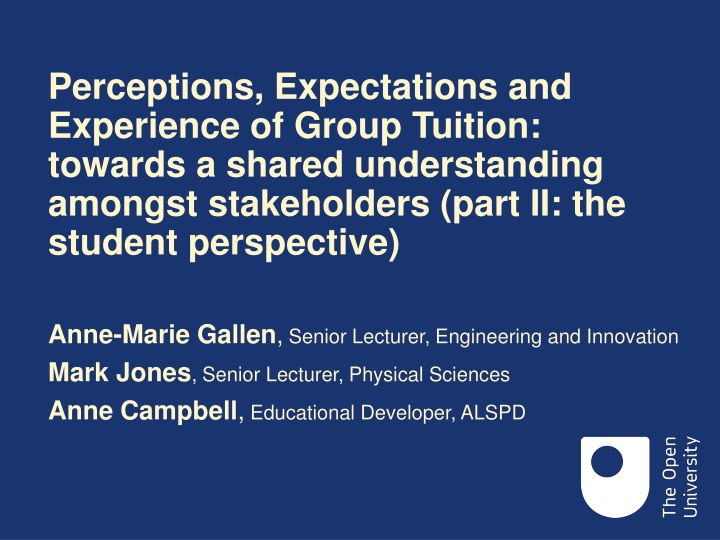
Understanding Perceptions and Expectations in Group Tuition
Explore the shared understanding of group tuition across stakeholders in an educational setting, focusing on the student perspective. Investigate the impact of perceptions on attendance and participation, aiming to bridge gaps and provide guidance for tutors and students.
Download Presentation

Please find below an Image/Link to download the presentation.
The content on the website is provided AS IS for your information and personal use only. It may not be sold, licensed, or shared on other websites without obtaining consent from the author. If you encounter any issues during the download, it is possible that the publisher has removed the file from their server.
You are allowed to download the files provided on this website for personal or commercial use, subject to the condition that they are used lawfully. All files are the property of their respective owners.
The content on the website is provided AS IS for your information and personal use only. It may not be sold, licensed, or shared on other websites without obtaining consent from the author.
E N D
Presentation Transcript
Perceptions, Expectations and Experience of Group Tuition: towards a shared understanding amongst stakeholders (part II: the student perspective) Anne-Marie Gallen, Senior Lecturer, Engineering and Innovation Mark Jones, Senior Lecturer, Physical Sciences Anne Campbell, Educational Developer, ALSPD
Background Our research question Do our students, teaching staff and other staff have common perceptions and expectations of what tutorials are for? 2
Why does a common perception matter? Our tutorials are not mandatory. So student perception influences levels of attendance, as well as levels of participation during a tutorial. Our authoring teams design tuition strategies, which may encourage or discourage students from attending/participating in learning activities during tutorials. Our tutors design and run tutorials which influence student perceptions (the first tutorial can set expectations), and determine opportunities for learning. Other stakeholders can influence university-wide policy (e.g. professional services staff), or can affect tutor perceptions (e.g. staff developers). From the literature, for example Ogina & Mampane (2013): A common understanding of the role of tutor is crucial so that tutors and students know what to expect in a tutorial session. 3
Image: freepik.com Project aims 1. Broadly, to work towards identifying and developing a common understanding of the tuition of groups, within the STEM faculty and across the university more widely. To investigate differences in perceptions of face-to-face and online tuition between different groups. To understand tutor perceptions of tuition (Phase 1, completed & published) To understand student perceptions of tuition (Phase 2, current) To understand other stakeholders perceptions (Phase 3, future) To develop faculty and institutional advice for students, tutors and other staff to address mismatches. To disseminate to staff developers, module authoring teams, relevant professional services staff, and throughout the sector. 2. 3. 4
Methodology Phase 1: Associate Lecturer perceptions on the role of tutorials in distance learning, completed & published (Campbell et al. 2018) Qualitative data collection via semi-structured conversations with 19 STEM tutors teaching at Level 1 (modules in Science, Engineering & Technology, Maths). Thematic analysis. Phase 2: Student perceptions of group tutorials (whether having attended a tutorial or not attended any tutorials) Quantitative and qualitative data from a student survey: answered by 263 students studying five Level 1 modules. Reported 2020 eSTEeM conference. Qualitative data collection through in-depth semi-structured interviews with 8 student volunteers from the survey group. Full data analysis thematic analysis in Nvivo. Comparison with tutor perceptions from Phase 1. Initial reporting here. 5
AL Perceptions What were ALs perceptions and expectations? Saw their role being facilitators of student learning Building confidence and motivation Offering chances for student social interaction & social learning Tackling threshold concepts & skills and tricky topics Encouraging collaboration and group work Opportunity to intellectually challenge students Tutors believed that students expect a didactic experience focussing on assessment tasks Focus on lower attendance and general decline in numbers (both f2f and online) 6
Before tutorials Many students had initial worries and misconceptions about tutorials: Ranged from uneasiness and apprehension to anxiety my initial thoughts was I was a little bit worried (laughs) if I m honest because I thought well I don't, I don't fully understand what this is about and I wasn't sure if I was completely prepared for University fear and dread that I was going to be on the spot and asked questions Several times interviewees described these anxieties in the third person, suggesting a disassociation of their fears my concern would be people that are struggling might not want to reach out for the help and go to a tutorial with 10/15 other people and make mistakes, because, you you get a sort of knock to your confidence, don t you. Few had any of clear idea of f-2-f tutorials but some had ideas around online I don t think I remember reading any article about OU tutorials in advance that American like view room kind of thing, teacher down at front of a half- moon room type of thing. I suppose that s in my head, that s what I thought 7
Changing perceptions Perceptions and expectations changed rapidly once students started to attend tutorials both f2f and online: Both f-2-f and online were more useful than initially perceived they are definitely more help than not having them I did find them really really beneficial I d probably struggle a lot more if I didn t have the online or the face to face we all come out learning something from it The relationship with tutors was seen as a real benefit I ve found the more you show you don t understand .. the better understanding the tutor has that maybe the module isn t quite addressing the questions everybody has. Other benefits were identified including building of confidence and morale So actually it s quite a lot of confidence building, I think everybody benefits it turned out to be less formal which was actually quite nice However, some students reported shortcomings Sometimes I felt the tutor was doing a subject that they weren t comfortable with. And because I m a chemist, I know my chemistry really well, so I kind of got a bit sort of fed up I think there were times when I did have to you know, go to the actual topic and to read to actually clarify what er.. the person was talking about. 8
F2f versus online? Choices were complex and reflected students' diverse circumstances and diverse learning styles. Students differentiate between online and face to face and see different benefits in each. sometimes you just need that bit of face to face and somebody and explaining what it is you re trying to do face to face there's a lot of value add there and for me, it gives you an opportunity at a certain point where you got to in your learning to ask some questions You can be at home you don't have to talk, you have a choice of how you interact with people, you can speak using your microphone or you can type a question, and I think that you know, if you don t feel like going out or you don t feel like it today, it s easier to access an online tutorial and do that because you can choose to what degree you engage. I've had absolutely nothing but positive experience with online I think because there are no visual clues, you can't see anybody else...it's not an easy to engage in a, a naturally flowing conversation. the fact that they re recorded as well, really really helpful cos you can go over things I think the online ones are are easier to say oh I ll watch that at home, rather than actually take part. 9
Attending/not attending Students saw tutorials in terms of 'cost-benefit' analysis I think that it s all about whether it s relevant to you personally if you re going to get something out of it. I do try and look for ones for the blocks that I might want. The timing of live tutorials (online or f2f) was seen as key to attendance I think having the opportunity to do it when the kids are at school, rather than then their nagging you for toast, or whatever, in the evening would . would be beneficial my tutor s [tutorials are] actually on a Sunday. Er . Sunday early evening and I ve got my daughter and trying to iron and do things and get her sorted, bath and all that. So Sunday evenings are out for me Geography was also important for f2f - within a reasonable distance, for long enough and relevance I think if we re travelling an hour away to go somewhere for the day, it would, you know, it would be good if we had the opportunity to do things that we aren t able to do at home. it's about timing for me, because you know I don't live anywhere near where they, where they have these so for me it's an hour and a half drive on a, on a Saturday 10
Group work and social interaction Group work was valued by students, but not always offered "we done a group activity where we ... were measuring and you know, drawing and that was quite nice getting a hands on feel for it, cos you actually understood the concept more by doing that" "I haven t been able to participate in pretty much any group activity to be honest" Social interaction was valued within and beyond the tutorial space "what s great there is you've got a number of other you know peers that are learning, and they will ask a question you haven't thought of for an angle you haven't thought of and then that makes you think" "...you feel empowered, you can ask what you think is the silliest question and you find out that everybody else was thinking the same thing, but didn t want to ask and it s all very friendly" "...we have a [students only] whatsapp group for the engineering side, we have little chats around some of the questions day to day life you know what you're doing today that kind of thing but a lot of it's an engineering problem, or ooh you see this on TV, it's really exciting. And that's great because you get to build those relationships with people" "there s a core group of us, but always that are on forum [...] the ones that are in the online tutorials ... so we sort of all know each other now and there s a sort of comfort behind [laughter] it all." 11
Perceptions and expectations: overlaps Overlap between AL and student perceptions: Help with "tricky topics" and (some) study challenges is a key function of tutorials The social aspect of tutorials is important (especially f2f but also online) - but this is nuanced (next slide) Recognition that engagement in tutorials results in benefits to motivation and confidence Attendance is a 'cost-benefit' decision 12
Perceptions and expectations: tensions Tensions between AL and student perceptions: Student AL Focus on assessment Format of and approach to assessment tasks is important "Students too focussed on assessment" 13
Perceptions and expectations: tensions Tensions between AL and student perceptions: Student AL Focus on assessment Format of and approach to assessment tasks is important "Students too focussed on assessment" Approach vs. content? Integrated assessment? 14
Perceptions and expectations: tensions Tensions between AL and student perceptions: Student AL Focus on assessment Format of and approach to assessment tasks is important "Students too focussed on assessment" Approach vs. content? Integrated assessment? "Students want presentations" (especially online) Didactic versus active Appreciate a mixture of approaches 15
Perceptions and expectations: tensions Tensions between AL and student perceptions: Student AL Focus on assessment Format of and approach to assessment tasks is important "Students too focussed on assessment" Approach vs. content? Integrated assessment? "Students want presentations" (especially online) AL perception of effectiveness? Didactic versus active Appreciate a mixture of approaches 16
Perceptions and expectations: tensions Tensions between AL and student perceptions: Student AL Focus on assessment Format of and approach to assessment tasks is important "Students too focussed on assessment" Approach vs. content? Integrated assessment? "Students want presentations" (especially online) AL perception of effectiveness? "Interaction is important, but difficult to facilitate" Didactic versus active Appreciate a mixture of approaches Social learning Engagement under students' control 17
Perceptions and expectations: tensions Tensions between AL and student perceptions: Student AL Focus on assessment Format of and approach to assessment tasks is important "Students too focussed on assessment" Approach vs. content? Integrated assessment? "Students want presentations" (especially online) AL perception of effectiveness? "Interaction is important, but difficult to facilitate" Didactic versus active Appreciate a mixture of approaches Social learning Engagement under students' control Spectrum: passive, interaction with tutor, informal chat, group work 18
Perceptions and expectations: tensions Tensions between AL and student perceptions: Student AL Focus on assessment Format of and approach to assessment tasks is important "Students too focussed on assessment" Approach vs. content? Integrated assessment? "Students want presentations" (especially online) AL perception of effectiveness? "Interaction is important, but difficult to facilitate" -ve effect of experience? Tutorial design to cater to this spectrum? Didactic versus active Appreciate a mixture of approaches Social learning Engagement under students' control Spectrum: passive, interaction with tutor, informal chat, group work 21
Thank you! Contact details: Anne-Marie Gallen Mark Jones Anne Campbell Acknowledgements: Sylvie Serpell for the excellent interviews anne-marie.gallen@open.ac.uk mark.h.jones@open.ac.uk anne.campbell@open.ac.uk 22

